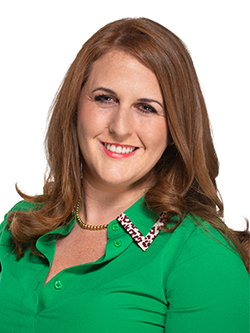The Best Consultants Burst Biopharma Bubbles

By Louis Garguilo, Chief Editor, Outsourced Pharma

The virtual biopharma model is:
- fueled by early funding;
- enabled by extensive outsourcing;
- rushed towards critical milestones; and
- needs competent consultants.
At these beginning moments of a newly formed organization, those consultants forward-focus you on:
- short, medium and long-term CMC strategy;
- quality and (international) regulatory support systems;
- downstream development and manufacturing partners; and
- planning for commercial success.
“In early development, you are necessarily focused on the scientific and technical aspects of your program,” says Evelyn Kelly, founder of Orphan Drug Consultants, Ltd. “You hire brilliant scientific minds. It’s exciting.”
“As a consultant, I come in, listen to your science and story, and I get excited as well. But then I have to put that aside, and essentially “burst the bubble” by switching focus to actually launching the product.”
Letting The Air Out
Initial deflators come in the form of simple questions. For example, a new consultant will inquire of you:
“Have you put your program on stability yet?”

“But it’s important to remember the long-term goals of your product,” she continues.
“I have to ask our clients if we can spend an extra buck now, and put a batch down for stability. I tell them it will save us a bunch of money in the future.”
This may be followed with detailed questions regarding temperature, often more important than ever considering the type of development programs in pipelines today.
New drug developers, says Kelly, may start out accepting they will have to launch “cold chain.”
She puts up a fight at such automatic acquiescence.
Solving early for later distribution challenges, says Kelly, “saves you a whole lot of hassle,” and staves off potential problems.
These consultant prompts are in fact in the service of focusing the current mind on the end goal, the raison d'être for the drug company’s existence:
“How can we get thinking commercially rather than clinically?” is how Kelly phrases it.
“It can be a challenge to switch this mindset, especially in virtual and smaller companies working on their first asset,” she explains. “But the reason they get funding in the first place is because they believe they have a viable medicinal product that will improve or even save people's lives.”
“I have to get the virtual biotech to always think thoughts such as: ‘How will we get this drug to the populations most in need of it?’
“The sooner we instill commercial thinking into a clinical-stage company, the better.”
Ice Water
Kelly augurs this forward-thinking in a number of ways, including organizing workshops for biopharma clients. These are typically run for clients in phase two or three, but she now sees more phase-one clients signing up as well.
“These workshops are valuable tools to level-set. They give clients an understanding of the launch process, the considerations needed around supply, and compliance practices and principles. This can be a real eye-opener into the complexity and organization essential to deliver a successful launch.”
As you’d expect, more questions emerge from these workshops, such as:
“What types of inventory do we think we will need?”
This focus is on “simple sales and operational processes, and important even at phase one. Another future-reaching question might be:
“How are we going to manage our complaints? Who’s going to do this work?”
“We look for things that can transition, and we look to make those transitions,” Kelly says.
“For most companies we work with [~70% of Orphan Drug Consulting’s customers are U.S.-based biotechs], this can be a bucket of ice water on them.
“And then,” she slips in, “they need to go to Europe, and that’s like more ice!”
Instead of experiencing that cold reality, says Kelly, a consulting organization helps you visualize and, prioritize early, how to commercialize and launch the product(s) you are developing.
“Learn from anticipating key components, such as customs,” she says.
When it comes to customs, Kelly says a critical “miscalculation” her start-up biopharma clients make is declaring their clinical trial product as “zero value.”
“They do that because at the time it still is, so to speak, of zero value; its viewed as a non-commercial research material,” she explains.
But when success strikes – maybe it’s FDA-approval in the U.S.:
“It’s ‘bam!’ The next shipments for European markets get stopped. There’s a large customs bill. You have it on the market in the U.S. at its defined commercial price, and now you are claiming zero value because it’s still clinical material in Europe. It doesn’t add up, but delays surely will.”
“We need to agree on a reasonable commercial value to avoid future delays,” she tells clients.
Ask Now, Safe Later
Kelly has a client currently in phase one, and in the process of picking a clinical packager. There are four potential candidates.
“I asked them if they want a partner for commercial as well? I explain I know companies who do both clinical and commercial manufacturing and packaging really well.’”
“That,” she says, “could turn out working well for them, mitigating future challenges, time, and money spent.”
And so:
To keep the denizens of virtual and small biopharma organizations on a positive trajectory, a consultant should catalyze thoughts now of what ultimate success looks like.
“Yes, we are going to get a product on the market,” should be the affirmative starting point.
At the same time, Kelly also stress the right consultants must come to understand the path forward for clients includes the parameters of the present.
Client and consultant must work together mindful of the resources available, and the budget that can be invested upfront or when. There are investors, assigned milestones, outsourcing partners, and of course clinical trials informing decision-making.
“I’m saying we do whatever we can to make the transitions to the next steps easier,” Kelly concludes. “And knowledge is power that avoids future problems.”
